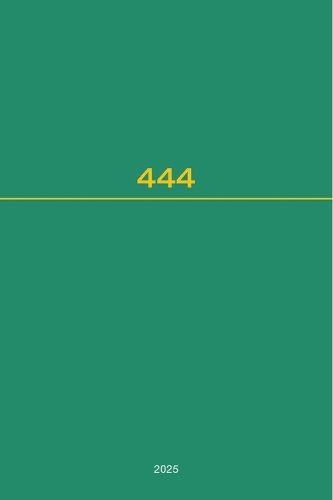Readings Newsletter
Become a Readings Member to make your shopping experience even easier.
Sign in or sign up for free!
You’re not far away from qualifying for FREE standard shipping within Australia
You’ve qualified for FREE standard shipping within Australia
The cart is loading…






Helene Tigroudja, Conflits armes et droit international des droits de l'homme
Prenant pour point de depart l'affirmation, par la Cour internationale de Justice en 1996, selon laquelle les droits de l'homme s'appliquent en periode de conflits armes, le cours explore sous un angle a la fois theorique et pratique ce qu'implique cette irruption des droits de l'homme - et des mecanismes internationaux de surveillance - dans un champ qui, pendant longtemps, a ete considere comme exclusivement ou principalement conduit par le droit des conflits armes. Au-dela de l'humanisation de ce dernier, l'approche des conflits en termes de droits subjectifs individuels ou collectifs, opposables aux Etats et justiciables - y compris en ce qui concerne les droits economiques, sociaux, culturels et environnementaux -, constitue un vecteur puissant de l'autonomisation et d'autodetermination de l'individu, meme dans des contextes aussi destructeurs et liberticides que les situations de violences generalisees. Pour autant, le cours vise aussi a presenter les insuffisances et limites du droit international des droits de l'homme pour apprehender les comportements des groupes non-etatiques et des organisations internationales par exemple, ou bien encore la reparation integrale des violations graves et massives. S'appuyant sur une analyse approfondie et comparee de la pratique de la Cour internationale de Justice, des juridictions penales internationales, des organes universels et regionaux de protection des droits de l'homme (cours regionales, organes de traites des Nations Unies, procedures speciales du Conseil des droits de l'homme), le cours invite a reflechir de maniere critique au role potentiellement preventif, protecteur et transformateur du droit international des droits de l'homme face aux conflits armes.
Inger OEsterdahl, The Regulation of the Internet
For more than 25 years, since 1998 the item of "[d]evelopments in the field of information and telecommunications in the context of international security" has been on the agenda of the United Nations (UN) General Assembly. This course deals with the normative results so far of the debates in the UN General Assembly, in the form of General Assembly resolutions primarily, reports of working groups, states' positions taken on the application of international law in cyberspace, and international conventions that have been worked out within the framework of the UN General Assembly and that have been proposed and might potentially be worked out in the future. The discussions in the General Assembly mostly concern the way in which international law applies on the Internet; whereas initially it was uncertain whether international law would apply or not on the Internet, the discussions today concern not whether but how international law applies. How international applies on the Internet, however, is a question that so far remains unresolved among the members of the UN General Assembly.
$9.00 standard shipping within Australia
FREE standard shipping within Australia for orders over $100.00
Express & International shipping calculated at checkout
Helene Tigroudja, Conflits armes et droit international des droits de l'homme
Prenant pour point de depart l'affirmation, par la Cour internationale de Justice en 1996, selon laquelle les droits de l'homme s'appliquent en periode de conflits armes, le cours explore sous un angle a la fois theorique et pratique ce qu'implique cette irruption des droits de l'homme - et des mecanismes internationaux de surveillance - dans un champ qui, pendant longtemps, a ete considere comme exclusivement ou principalement conduit par le droit des conflits armes. Au-dela de l'humanisation de ce dernier, l'approche des conflits en termes de droits subjectifs individuels ou collectifs, opposables aux Etats et justiciables - y compris en ce qui concerne les droits economiques, sociaux, culturels et environnementaux -, constitue un vecteur puissant de l'autonomisation et d'autodetermination de l'individu, meme dans des contextes aussi destructeurs et liberticides que les situations de violences generalisees. Pour autant, le cours vise aussi a presenter les insuffisances et limites du droit international des droits de l'homme pour apprehender les comportements des groupes non-etatiques et des organisations internationales par exemple, ou bien encore la reparation integrale des violations graves et massives. S'appuyant sur une analyse approfondie et comparee de la pratique de la Cour internationale de Justice, des juridictions penales internationales, des organes universels et regionaux de protection des droits de l'homme (cours regionales, organes de traites des Nations Unies, procedures speciales du Conseil des droits de l'homme), le cours invite a reflechir de maniere critique au role potentiellement preventif, protecteur et transformateur du droit international des droits de l'homme face aux conflits armes.
Inger OEsterdahl, The Regulation of the Internet
For more than 25 years, since 1998 the item of "[d]evelopments in the field of information and telecommunications in the context of international security" has been on the agenda of the United Nations (UN) General Assembly. This course deals with the normative results so far of the debates in the UN General Assembly, in the form of General Assembly resolutions primarily, reports of working groups, states' positions taken on the application of international law in cyberspace, and international conventions that have been worked out within the framework of the UN General Assembly and that have been proposed and might potentially be worked out in the future. The discussions in the General Assembly mostly concern the way in which international law applies on the Internet; whereas initially it was uncertain whether international law would apply or not on the Internet, the discussions today concern not whether but how international law applies. How international applies on the Internet, however, is a question that so far remains unresolved among the members of the UN General Assembly.